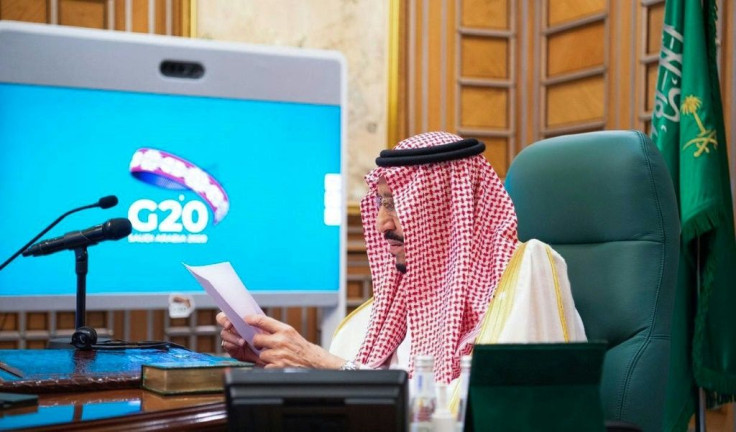G20 Vows To Fight Coronavirus Impact On Poor Nations
G20 finance ministers and central bankers pledged Tuesday to address the debt burden of low-income countries and deliver aid to emerging markets as part of a plan to combat the coronavirus pandemic.
The announcement followed a second round of virtual talks after G20 leaders pledged a "united front" last week and said they were injecting $5 trillion into the global economy to head off a feared deep recession.
The ministers and bankers from major industrialised and emerging economies also welcomed a $160 billion World Bank relief package to be deployed over the next 15 months to support its member countries, the Saudi hosts said in a statement.
They agreed to press ahead with a plan to address "the risk of debt vulnerabilities in low-income countries" and work to "swiftly deliver... financial assistance to emerging markets and developing countries", the statement said.
The announcement comes a day after the UN called for a $2.5 trillion aid package to help developing countries weather the pandemic, including debt cancellation and a health recovery "Marshall Plan".
A report from the United Nations Conference on Trade, Investment and Development (UNCTAD) said two-thirds of the global population based in developing countries -- excluding China -- face "unprecedented economic damage" from the crisis.
The ministers and bankers tasked G20 working groups to outline details of the plan by the group's next meeting on April 15.
G20 countries will work with the Financial Stability Board -- an international body set up after the 2008 financial crisis -- to coordinate regulatory measures in response to the pandemic, the statement added.

The talks follow criticism that the G20 has been slow to address the COVID-19 pandemic, which has left more than 40,000 people dead worldwide and triggered financial shock waves as some two-fifths of the globe's population is put under lockdown.
US President Donald Trump and Russian President Vladimir Putin joined last week's emergency summit chaired by Saudi Arabia's King Salman, who called for coordinated action while facing pressure to end an oil price war between Riyadh and Moscow that has roiled energy markets.
As concerns mount for poorer countries without access to capital markets or adequate health facilities, G20 leaders pledged to work with bodies such as the International Monetary Fund to deploy a robust financial package to support developing nations.
"We welcome the decisive actions many of you have taken to shield people and the economy from COVID-19, that led to a decline in volatility in major financial markets in recent days," IMF managing director Kristalina Georgieva said at Tuesday's meeting.
"Nonetheless we remain very concerned about the negative outlook for global growth in 2020 and in particular about the strain a downturn would have on emerging markets and low-income countries."
G20 trade and investment ministers also held an extraordinary meeting on Monday, as they assess the impact of the crisis on global trade.
They said they were working to ensure the flow across borders of medical supplies and equipment -- which are in short supply in some hard-hit nations -- as well as critical agricultural products, and other essential goods and services.
"We will guard against profiteering and unjustified price increases," they said in a statement, while also warning against trade barriers and disruption to global supply chains.
© Copyright AFP 2024. All rights reserved.











